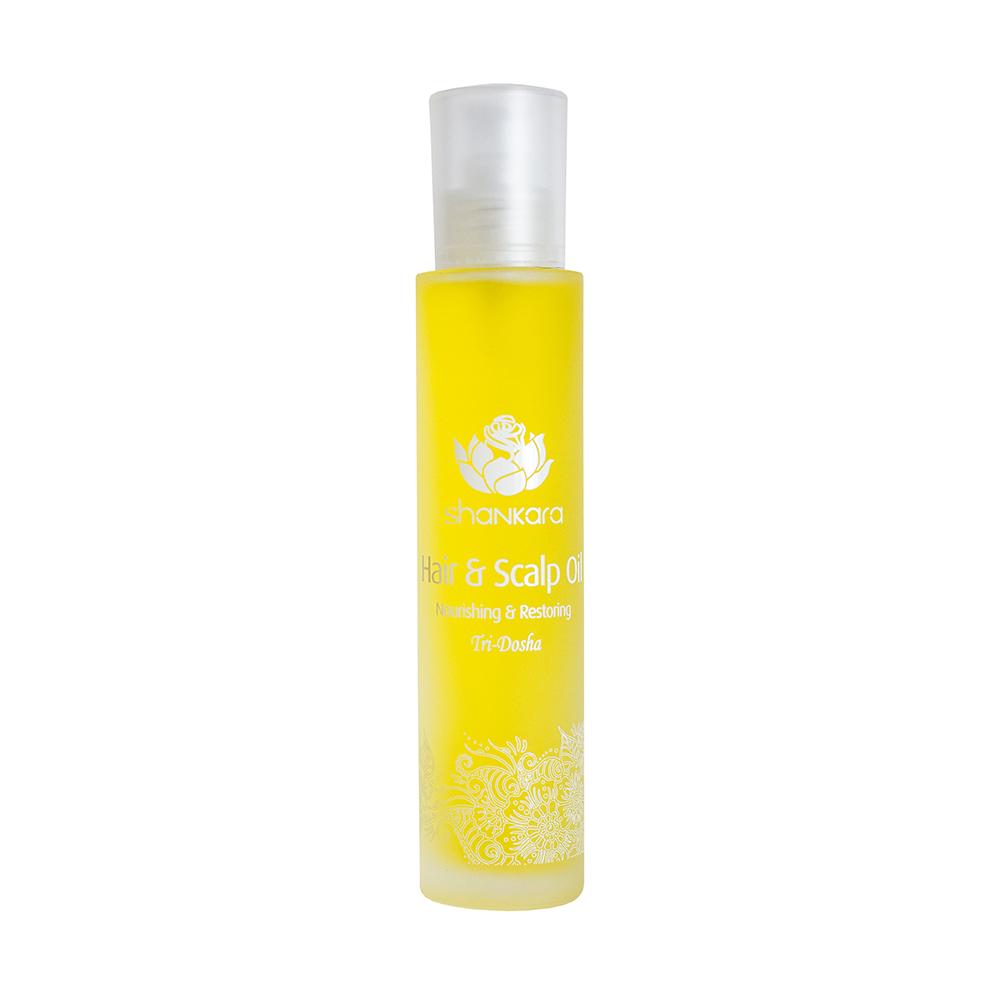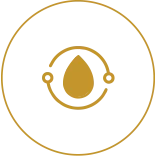Trichophobia or the fear of a receding hairline is a real thing for a lot of us. Hair breakage can be heart breaking and give you sleepless nights when you find yourself helplessly staring at split ends and brittle shorter strands of hair breaking off after every hair wash and every comb. But good thing is, there are natural ways to fix it once you have understood the causes. Here’s a low down on what causes hair breakage and what you can do about it!
Difference between hair fall and hair breakage
Hair fall is the hair you lose due to weakening of the root or hair follicle. Some of it occurs naturally as part of the cycle of hair growth, shedding, resting and regrowth. Experts say, an average person loses 100 strands of hair due to this. Hair fall can be a cause of concern when you are losing more hair than that and bald patches have begun to surface on the scalp. Hair breakage is really the problem of your hair shafts weakening and breaking off. Hair breakage is due to excessive hair dryness and hair damage, caused by many factors including poor diet, stress, overusing heat styling products, over washing, not enough hydration and other genetic reasons. Washing hair with hard water can also lead to hair dryness, resulting in hair breakage.
1. Diet
CHECK YOUR DIET. Does your food have enough vitamins (A,D3 and biotin), zinc, folic acid and iron, protein and antioxidants that support hair growth and maintain the health of hair follicles? Vitamin A not only supports good hair growth, it also aid the skin glands in producing sebum that maintains the moisture in the scalp. Vitamin C helps produce collagen that helps in making the scalp healthy. Biotin is non-negotiable for robust hair follicles. Studies have found, lack of it can lead to significant hair fall. Research also showed, people reported significant hair growth after they started having Vitamin E for about a year, naturally found in sunflower seeds, avocado and almonds among other foods.
2. Stress or trauma
Telogen Effluvium is the condition where one undergoes spurts of excessive hair fall due to a highly stressful or traumatic shock. In the natural cycle, hair grows, sheds, then, there is a resting period called telogen before the hair shafts regrow. But certain shock or trauma sends the hair follicles in the resting phase prematurely, that results in unnatural volume of hair fall, unlike the hair fall that naturally occurs as part of the cycle of hair growth.
Here’s what you can do for a healthy thriving physical body and a stress-free mind.
3. Dryness
Excessively dry scalp and hair is followed by hair breakage as the hair shafts become weak, dry and brittle. Anything you do to reduce the dryness of hair and hydrate it sufficiently will help you contain hair breakage, when it is caused by drying factors like overusing heating styling products, zero moisturizing and conditioning of the scalp, dry weather among other things.
4. Improper towel use
Rubbing your hair violently with a towel immediately after a shower could feel refreshing but can actually lead to hair damage. This is because wet hair is more prone to breakage. So lightly tying a wet towel around the hair to absorb the water can help.
5. Using hair ties
Though it keeps your hair from descending on all over your face and it looks neat, people who use elastic hair ties must be careful about the type of hair tie they use. This seemingly innocuous activity is one of the major reasons for higher hair breakage in the US as it pulls at the scalp and weakens the hair cuticle.
6. Quick tips to reduce hair breakage
A) Massage your hair with coconut oil
A time tested solution to hair dryness is massaging hair with half table spoon to one table spoon of coconut oil. Coconut oil is an excellent moisturizer for your hair and it contains lauric acid to stave off infections of the scalp that can potentially lead to hair breakage.
- Massage the coconut oil covering all of the scalp and running your fingers in a quick a motion from scalp to shafts.
- Leave the coconut oil in the hair overnight. Wash it off with a natural shampoo next morning.
B) Castor oil with coconut oil
You can also apply essential oils like castor oil mixed with olive oil or coconut oil (always use castor oil along with a carrier oil when applying to your scalp).Castor oil contains a good fatty acid like ricinoleic acid that aids blood circulation, that is needed for hair follicles to thrive.
C) Almond oil
You can replace castor oil with almond oil in the above preparation if you like. Almond oil is a storehouse of vitamin E, magnesium and healthy fatty acids that support hair growth, nourish it and protect it from breakage.
It can be arduous to blend more essential oils. How can we have the benefits of all these essential oils within an ideal blend? How much should the quantities be? Should we blend two of them or three of them and what is the procedure to extract them? RELAX!
Leave it to the professionals at Shankara to craft the perfect and most harmonic EO blends for your hair and scalp that use extracts from all the above essential oils and more, bringing the best of Ayurvedic wisdom from the east and the knowledge of natural actives in the west. Made into perfection, so when the oil drips on your scalp, and you rub it evenly, gradually and lovingly, you can feel the goodness of all these essences seep into your cuticles, making you relaxed, hydrated as the aromatic richness wafts through the space you walk in. Feel the stress dissolve away!
D. Deep oil massages
Deep oil massage twice to thrice a week with Shankara’s Hair and Scalp Oil made from the richness of sesame oil, avocado oil, Jojoba oil, Vitamin E Tocopherol, gooseberries extract, sandalwood essential oil, bringraj extract, lavender essence, clary sage and rosemary, is specifically designed to moisturize dry and damaged hair for more luminous, healthier, and voluminous locks. The oil is safe to use on colored hair. It deeply penetrates the hair shaft and conditions hair from the roots. It can be used for colored hair too!
Why are we doing this?
When you massage the scalp and hair, the oil nourishes the cells in the scalp, stimulates blood circulation in the head region, detoxifies the scalp and additionally causes the secretion of happy hormones like serotonin in the body giving you a relaxing and calming sensation. Oiling is a great way to have the rich nutrients and antioxidants present in the oil seep into the tissues for complete nourishment. But you must know your hair oil well and if it is suited for your hair and scalp type which could be weighing on the drier side or it could be sticky.
E. Shiro Abhyanga
Take Ayurvedic Deep Tissue massages like Shankara’s Shiro Abhyanga Warm Oil Scalp Massage to make sure they are sufficiently oleated and nurtured.
Why are we doing this?
The health of your scalp is directly linked to the health of your tissue systems. So if these deep tissues remain undernourished, it is likely to reflect in the quality of your hair and scalp. Abhyanga is one of the most popular and recommended therapies in Ayurveda that incorporates warm, aromatic oils, rhythmically massaged into your body, which loosen toxins, relax the nervous system, and provide rest, nourishment, and rejuvenation.
F. Air drying
At least a couple of times a week let your hair naturally air dry instead of using heating products. Daily use of heating tools can weaken the hair follicles and the rest of the layers that hold the hair strands in place.
—











